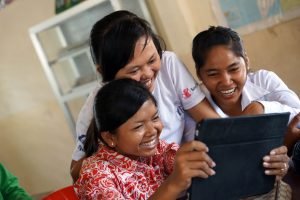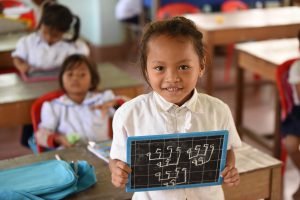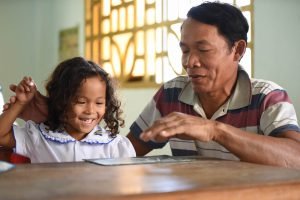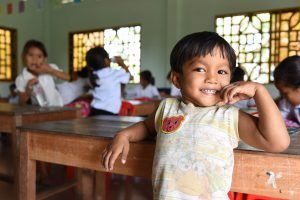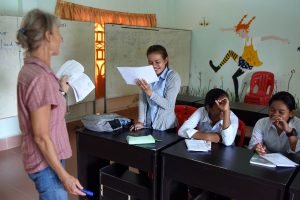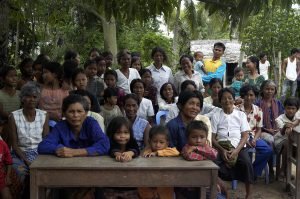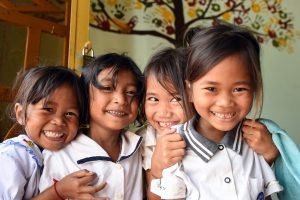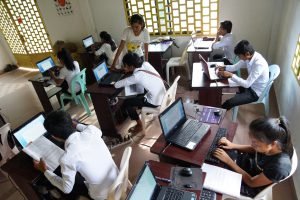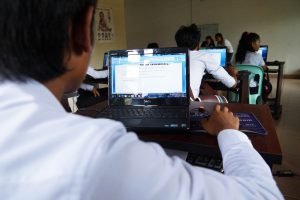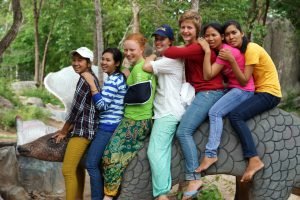School
Things look different through different eyes
Friday afternoon, shortly before the start of the 'conversation class'. The older students of the school are milling around in front of the school building and bombard me with questions. To take part in the free English lessons, many of them have cycled here from the surrounding villages. Sam-Bo stands a little apart, looking shyly but curiously at the hustle and bustle. For new pupils like him, lessons with us mean a change. Sam-Bo does not have to jump up from his seat when I speak to him. He also doesn't know how to talk in class. At Cambodian schools, we repeat what the teacher says or writes on the board. Our topics are unusual for the pupils; today it is about drinking water. Sam-Bo and the others listen intently. They are confronted with questions they have never thought about before.
Anke Treuter, Würzburg


